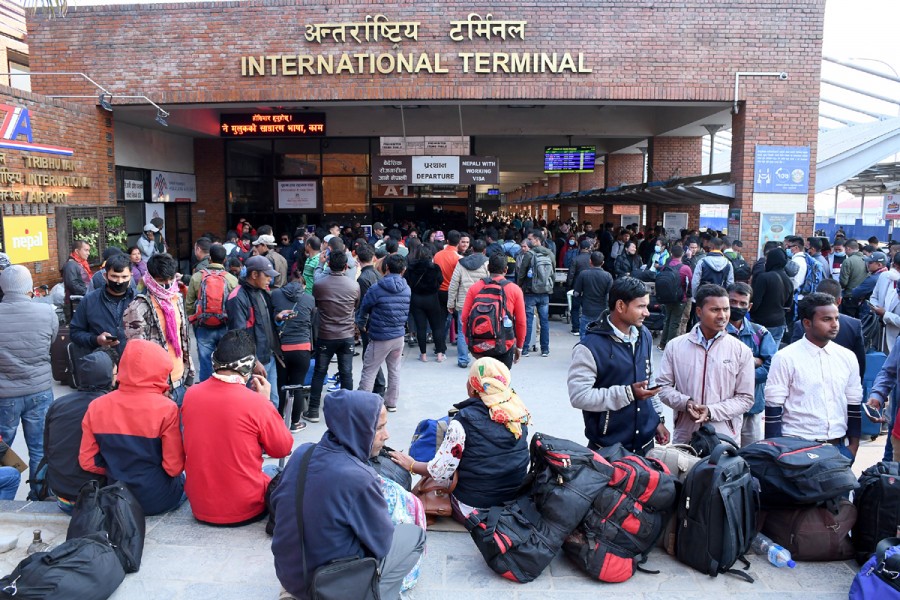Kathmandu: A recent study conducted by the Pravasi Nepali Coordination Committee (PNCC) sheds light on the precarious economic situation faced by Nepali migrant workers upon their return from foreign employment. Despite expectations of an improved financial status upon returning home, the study indicates that a significant number of returnees are still at financial risk.
The PNCC study focused on the economic and psycho-social reintegration of migrant workers who have returned from foreign employment, involving 109 participants out of 22,148 registered individuals from 2014 to 2022. The findings highlight several key challenges faced by these returnees.
A staggering 37.6 percent of migrant workers returning to Nepal are engaged in subsistence agriculture, while 16.5 percent find themselves unemployed. This underscores the difficulty these individuals face in securing well-paying jobs, encountering skill and knowledge mismatches in the labor market, and a shortage of decent work opportunities.
Of those who returned, only 9.2 percent reported successfully utilizing the skills acquired abroad in Nepal. A significant 33 percent stated that their skills were irrelevant to Nepal’s labor market, 20 percent cited a lack of similar job opportunities, and 11 percent faced technical challenges preventing the use of learned skills.
Financial challenges persist, with nearly 80 percent of migrant workers relying on loans for migration financing. Alarmingly, 50 percent of those who borrowed are now in arrears. The study also reveals that 72 percent of returnees were unable to save during their foreign employment due to various issues faced in destination countries, including problems related to contract letters, imprisonment, and disappearances.
Despite government initiatives encouraging returnees to invest their earned capital in Nepal, the study indicates that a lack of financial access remains a significant hurdle in turning returnees into entrepreneurs. A substantial 72 percent of workers returning from foreign employment were unable to save, limiting their capacity to invest in ventures.
Moreover, a lack of awareness about government-run financial schemes and programs is evident, with 59 percent of migrant workers expressing ignorance about employment, enterprise, and financial plans at central, provincial, and local levels. While some were aware of schemes such as the Prime Minister Employment Program (PMEP), skill and vocational training, and subsidized loans, only 13.3 percent benefited from these initiatives.
The study also highlights challenges in repatriation, as 44 percent of returning migrant workers express a desire to go abroad again. Factors such as failure to integrate into the local labor market, insufficient household income, and professional failures contribute to the decision to seek foreign employment once more. Of those planning to go abroad again, 54 percent intend to do so by taking a loan, emphasizing the role of debt in migration and the increased risk of workers becoming trapped in debt cycles.
In the post-COVID-19 era, the economic and psycho-social reintegration of returning migrant workers has become a pressing concern. Despite government efforts, the study underscores the persistent challenges and obstacles hindering the sustainable reintegration of these workers into the Nepali society.
